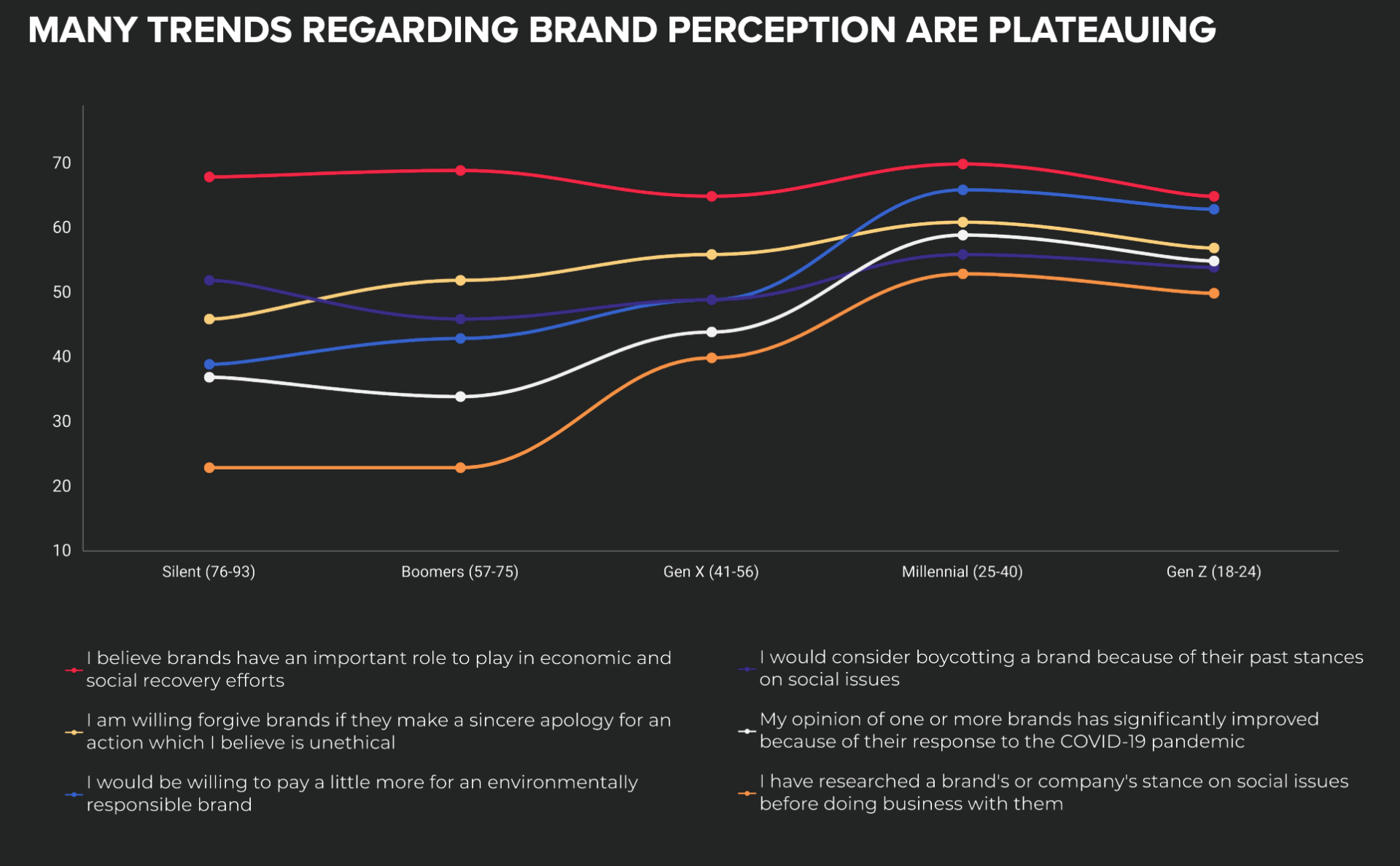One of the biggest news trends of the pre-pandemic year involved writing about Gen Z and its conflicts with older generations, especially Baby Boomers. As the youngest named generation began to enter high schools and colleges, their culture became highly visible across the media — especially through their own favorite platform: TikTok. There, they took advantage of the medium to defend their rapidly evolving culture, their socially-liberal attitudes, and their fascination with the wild and irreverent against an onslaught of criticism from older, conservative generations. Their rallying cry “OK Boomer” marked the end of generational relations, according to The New York Times’ tech reporter Taylor Lorenz.
It seemed as if generational differences were irreconcilable. Agencies began to specialize in targeting this emerging demographic, promising that the diversity and digital savvy of this population required specialist understanding.
But then came the pandemic, and things started to change.
Lockdown, studies show, brought families closer together, and even the oldest curmudgeon would admit that Zoomers have had it rough during the pandemic — coming of age in a time of difficult economic prospects, while spending a sizeable portion of their youth in isolation behind a screen. Any past criticism that the generation was spoiled seems to have faded overnight.
In February, when we carried out a survey across 3,001 U.S. citizens and 400 U.S. brand and marketing professionals to understand the drivers behind brand longevity, we also uncovered something interesting: the attitudes Gen Z holds towards brands does not differ much from other generations. In fact, Gen Z is upholding and strengthening many of the consumer values of their predecessors: a desire for quality products, new technologies, and established brands that understand their needs.
Our research found four elements that endured across generations as top drivers of brand longevity. Regardless of whether they belong to Gen Z or the Silent Generation, our data showed brand longevity is evaluated by consumers using similar criteria, with Product, Technology, Consumer Understanding, and Brand Heritage coming out on top.

However, we also found that if marketers don’t respond to these priorities, they might lose the trust of Gen Z.
Among all generations, millennials demonstrate the most affinity for brands and their social efforts. They are the most likely generation to believe brands have an important role to play in upcoming economic and social recovery efforts, most forgiving towards brand actions, most willing to pay more for environmentally conscious products, most likely to have improved their opinion on brands during the COVID-19 pandemic, and the most likely to do research on brands’ attitudes towards social issues than other generations. All of these attitudes, which could broadly be described as neoliberal, brand-friendly attitudes, were trending upwards across generations until Gen Z — which is more reserved in regards to these attitudes than the preceding generation.

Thinking beyond generational differences is key in order to find shared consumer values regarding brand longevity. It also brings a new perspective to the endeavor of marketing: through the lens of brand longevity, the objective of branding is not just about achieving short-term rewards by appealing to segmented markets, but about stewarding value across generations.
Gen Z might look and act different, but our research shows that it is still a generation that trusts brands and their potential to make the world a better place — although with some hesitations. Marketers cannot ignore this demographic as it starts earning capital and deciding the future course of our economy.
Follow the Thread
Insights from behind the headlines.